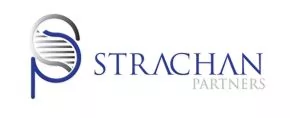In recent years, Nigeria's economic outlook has been shaken by a number of events most particularly, the fall in crude oil prices which led the country to fall into recession in the second quarter of 2016. That same year, Nigeria ranked 169th out of 190 economies on the World Bank's Ease of Doing Business Index. The Federal Government responded to these events by inaugurating the Presidential Enabling Business Environment Council (PEBEC) and launching the Economic Growth and Recovery Plan ("EGRP") 2017-2020 among other initiatives.
These interventions signal the government's awareness that policy and effective administration is key to the growth of the economy and they have facilitated Nigeria's exit from recession and improved rankings on the World Bank's Ease of Doing Business Index. Amongst highlights of these interventions, businesses can now be registered with the Corporate Affairs Commission (CAC) within 24 hours; procedures for obtaining products and services from Ministries, Departments and Agencies (MDAs) of the Federal Government have been made publicly available to promote transparency; a good number of MDAs are taking advantage of technological advancements by automating their processes; a feedback mechanism has been put in place for the public to express either negative or positive outcomes of interactions with MDAs among others. These developments significantly improve the attractiveness of Nigeria for any investor.
This publication is an investor's guide to recent economic trends in the country, contains highlights of investment opportunities available in various sectors of the Nigerian economy, and overviews regulatory requirements, approvals, and incentives for both local and foreign investors.
FACTS
Nigeria is located in West Africa on the Gulf of Guinea between the Republic of Benin and Cameroon. It shares its land borders with Cameroon in the East, Niger in the North, the Republic of Benin in the West, and Chad in the North East. Its coast in the South lies on the Gulf of Guinea on the Atlantic Ocean.
The country became an independent state on 1st October 1960, having been colonized by Britain in 1861 and operates a democratic system of government. It is a multilingual state with over 250 languages. The 3 major languages spoken in Nigeria are Hausa, Igbo, and Yoruba, while the official language is English.
According to the National Population Commission, Nigeria has a population of 198 million people with an average annual growth rate of more than 6.5%, making it the most populous country in Africa and the seventh globally. According to the United Nations' population projections, Nigeria is one of the six countries in the world expected to exceed a population of 300 million by 2050. The largest population concentration is in Lagos with an estimate of 21 million inhabitants as of 2016. Lagos is the commercial hub of Nigeria with a thriving financial district in Victoria Island and Lagos Island, a major port in Apapa and several corporate headquarters and factories located within the city and its outskirts. Other major Nigerian cities and industrial centers include Port Harcourt, Onitsha, Kano, and Aba. The Federal Capital territory is Abuja.
The country's natural resources include crude oil, natural gas, tin, iron ore, coal, limestone, lead, zinc, bitumen and a large expanse of arable land. The country's monetary unit is the Naira (N). In the first quarter of 2018, the country's aggregate Gross Domestic Product ("GDP") stood at N28.464 trillion in nominal terms and N16.106 trillion in real terms.
The content of this article is intended to provide a general guide to the subject matter. Specialist advice should be sought about your specific circumstances.

